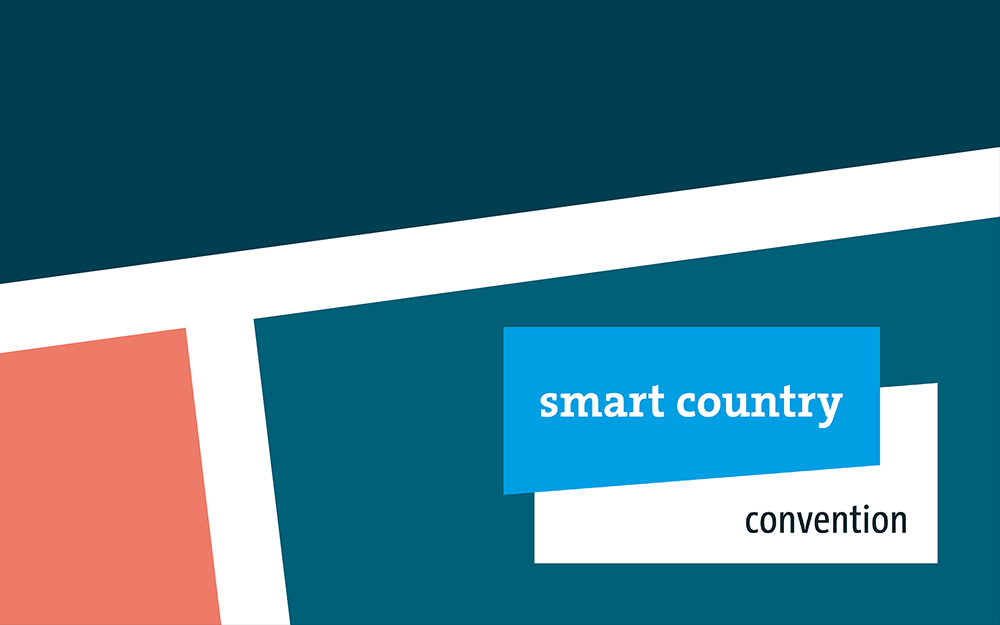“Stadt.Land.Tech” – under this motto, this year’s Smart Country Convention once again presented itself as a meeting place for all stakeholders who are driving digital change. The leading event for the digital state and public services offered an extensive three-day program with space for workshops and networking. aconium welcomed numerous trade visitors to its own stand and took part in the convention program with a presentation.
At the start of the Smart Country Convention 2023, patron and Federal Minister of the Interior Nancy Faeser emphasized the goals of the federal government: “We want to save people valuable time, put an end to paperwork, make open data usable and administrative work transparent.” Together with Agriculture Minister Cem Özdemir, Construction Minister Klara Geywitz and Justice Minister Dr. Marco Buschmann, they provided insights into the digital future of our democracy at various events. The digital state has also long been indispensable for the economy. “A digital administration is not a nice-to-have, but is developing into an important location factor, especially with regard to contact between companies and administrations,” said Bitkom President Dr. Ralf Wintergerst. Both sides got talking at the Smart Country Convention, with Messe Berlin CEO Dr. Mario Tobias adding: “…over the years, the Smart Country Convention has become the meeting place for experts from the public sector.”
In the video message from this year’s partner country Ukraine the Deputy Prime Minister and Digital Minister of Ukraine Mykhailo Fedorovshowed that even now, during Russia’s war of aggression, Ukraine is continuing to work on building a digital state. The country impressively demonstrates how important it is for the population to have access to digital administrative services, especially now, and to be able to use ID cards and official documents via smartphone, for example with the help of the Diia portal, a state app with numerous digital administrative services, both inside and outside Ukraine. aconium is supporting the digital transformation in Ukraine and, together with the Ukrainian Ministry of Digital Transformation (MDTU) and the EU4DigitalUA project, has implemented the broadband information system for Ukraine, for example.
A special highlight on the first day of the trade fair was the presentation of the Bitkom Smart City Index Award. Experts from Bitkom Research collected, reviewed and qualified 12,717 data points in five subject areas – from online citizen services to sharing offers for mobility and intelligent traffic lights to broadband availability. The area of education was also examined for the first time this year. The results are available individually for each city.
At our stand, visitors were able to find out more about the digital pioneer city of Nuremberg, which came fourth in this year’s Bitkom Smart City Index. There, everything revolved around the digital twin, smart city strategies and best practice examples from regional development. Our Smart Regions team led by Friedrich Huffert and Claire Piqueret Rose presented the master portal from the TwinBy project, which is funded by the Bavarian State Ministry for Digital Affairs. The master portal is an open source application for integrating various data sets from which municipalities can benefit. “With the TwinBy project, smaller municipalities can also get started with the topic of digital twins at a low threshold,” says Piqueret Rose. “The intended replicability of the use cases and solutions holds a lot of potential, especially for rural municipalities.”
In addition to the digitalization of rural areas, we also focus on building the skills of employees in the public sector, for example through e-learning courses and learning platforms. With the aconium Academy, we offer a wide range of training courses and were able to present corresponding training opportunities to the specialist audience at the Smart Country Convention.
The second day of the Smart Country Convention brought together Germany’s digital ministers (D16). Chaired by Berlin and Brandenburg, they discussed blueprints for digitalization and transformation as well as digital strategies and looked at example projects from across Germany.
With the presentation “Tirana – a model for the Western Balkan Countries, current initiatives” by our team leader for Albania, Henri Haxhiraj, the visitors were able to take a proverbial look at the bigger picture. He reported on his experience in implementing projects to expand the local broadband infrastructure and smart city initiatives and gave an overview of the higher political level. “In the field of eGovernment, the e-Albania platform is a key component in the Albanian digital landscape, a portal where 95 percent of all government services come together in a user-friendly way,” said Haxhiraj. “We can use our expertise to support the Albanian state in setting up smart city solutions, for example.”
Other highlights of the Smart Country Convention were the Career Day, which focused in particular on the topic of securing skilled workers, and the presentation of the Smart Country Startup Award. Here, the companies SUMM AI and Plan4 Software were recognized for their innovative solutions in the fields of GovTech and Smart City.
With more than 15,000 participants, over 300 exhibitors and 600 speakers as well as top politicians from national and digital policy, the Smart Country Convention once again proved to be one of the most important forums for exchange for the international broadband industry. In addition to the partner country Ukraine, representatives from other European countries such as Spain, Portugal, Finland and Estonia presented their pioneering projects and digitalization initiatives. The date for next year is of course already fixed in the calendar: the next Smart Country Convention will take place from October 15 to 17, 2024 and will once again bring together administrations, politics, science and the digital economy.

